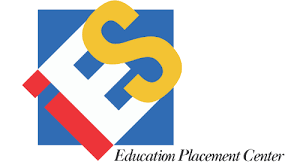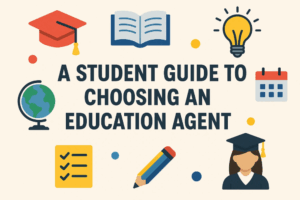When you work with a trusted education consultant, one of the most critical pieces of your application that they will help you refine is your personal statement. It is more than just a writing exercise, it can tip the balance in your favour by offering a narrative that your grades and test scores cannot.
Below, we share practical guidance, grounded in admissions perspectives, to help you write a personal statement that resonates.
Why the Personal Statement Matters More Than You Think
Academic records, test scores, and transcripts carry weight. But admissions committees often say those quantitative factors tell only half the story. A personal statement adds “texture”, it helps the committee see who you are beyond metrics.
Your statement is the vehicle through which you reveal your voice, motivations, attitudes, growth, and how you’ll contribute.
Because reviewers often have limited time per file (sometimes just 5–10 minutes), every sentence counts. A strong personal statement can make your application feel memorable rather than one in a stack.
What Admission Panels Are Really Looking For
Before you write, it helps to know what admission officers and panels are scanning for. Here are the elements they often prioritise:
- Authenticity & personal voice
Over-polished prose, committees prefer a statement that feels like you. Distant, over-edited essays may come off as generic.
- Reflection & insight
It is not enough to list experiences. Admissions want to see what you learned, how you changed, and why those lessons matter.
- Fit & alignment
You should show why this programme and this university make sense for you specifically, your interests, values, and goals.
- Contribution & potential
What will you bring to the campus? How will you enrich the academic and social environment?
- Clarity, structure & coherence
Even a brilliant story can falter if poorly organised. Logical flow, clear paragraphs, and transitions matter.
- Language, grammar & presentation
Spelling errors, awkward phrasing, or mechanical mistakes can undermine your credibility. Panels expect competent writing.
A Step-by-Step Guide to Writing a Compelling Personal Statement

The following roadmap can act as your personal guide in studying abroad, especially when you are preparing an essay that reflects your story and goals:
1. Brainstorm deeply (before writing)
Don’t start by drafting, you can start by exploring:
- Key experiences (academic, personal, extra-curricular)
- Moments of challenge or change
- Values or beliefs that shape you
- Long-term aspirations and “why” behind them
- Possible links between your experiences and the programme you seek
Try to list 3–5 story ideas, then reflect on which has the richest meaning and potential for insight.
2. Choose your structure: narrative or montage
Two common approaches:
- Narrative: Focus on a turning point or event, telling how it shaped you
- Montage: Use several shorter vignettes unified by a theme or value
Whichever you choose, your “so-what” reflections should thread through.
3. Craft a strong opening hook
Start with something vivid: a moment, image, question, or small anecdote that draws the reader in. Avoid clichés. Let your opening reflect your tone and theme.
4. Move into body paragraphs with purpose
Structure your body so that each paragraph:
- Focuses on one experience or idea
- Offers a brief descriptive narrative
- Reflects (so what? what did I learn?)
- Ties back to your goals or values
Don’t simply narrate, you have to ensure reflection is present in each section.
5. Demonstrate your fit and contribution
In a dedicated paragraph (or interwoven), explain:
- Why are you drawn to this programme, university, or particular faculty
- What relevant strengths or qualities you bring
- How will your background, experiences, or perspectives enrich the community
Be specific: cite modules, faculty, or opportunities that appeal to you.
6. Conclude with vision and resonance
Your conclusion should deepen (not merely repeat) your narrative. Consider:
- How does this journey lead you toward your goals
- What do you hope to do in the future
- A forward-looking image or aspiration
Avoid generic endings like “thank you” or “I hope to be accepted.” Instead, aim for a closing that ties back to your opening or core theme.
7. Revise, refine, and polish
- Leave your draft for a few days. Revisit it with “fresh eyes.”
- Read it aloud, because this will allow you to catch awkward phrasing or logic gaps
- Ask trusted reviewers (mentors, teachers, consultants) to check for clarity, consistency, tone
- Aim for 3–5 drafts, with strong statements rarely emerging in a first pass
- Check grammar, spelling, and word limits carefully
Your education consultant can help you with iterative feedback and fine-tuning.
How Your Trusted Education Consultant in Malaysia Can Help
Working with a reputable consultant can elevate your personal statement significantly. An experienced consultant will help you select the most compelling story from your experiences and provide structured feedback on your drafts to ensure clarity and focus. They are trained to identify weak areas such as unclear transitions, missing reflections, or vague connections to your goals, and they can guide you in strengthening these elements.
Because they are familiar with both local and international expectations across destinations like the UK, US, Australia, and Canada, they can ensure your essay meets the specific standards of each institution. Beyond shaping the content, they also assist with aligning your narrative to institutional preferences, as well as with formatting, proofreading, and final checks.
When choosing a consultant, look for evidence of expertise, transparency, and testimonials that reflect their track record. Some Malaysian consultants, such as Inquota Education Services, already emphasise personal statement reviews as an integral part of their services.
Final Takeaways
Crafting a strong personal statement requires authenticity, focus, and reflection. The best essays highlight your individuality, narrate meaningful experiences, show insight, and connect directly to your academic and career goals. Rather than trying to cover everything, concentrate on a few powerful themes and refine them through multiple drafts.
Expert guidance can also make a significant difference. As a trusted education consultant in Malaysia, we provide valuable perspective, feedback, and polish to help your story stand out. At Inquota Education Services, we work closely with students to develop personal statements that resonate with sincerity, demonstrate growth, and clearly communicate.
With the right preparation and support, your application will not only stand out on paper but also leave a lasting impression on admission panels. If you are ready to strengthen your personal statement and increase your chances of admission success, contact us today for a personalised consultation.
FAQs
It depends on the institution or programme. Many undergraduate applications allow 400–600 words (or ~1 page). Some graduate or scholarship essays ask for 800–1,000 words. Always follow the stated limit; exceed it only if allowed.
You can repurpose parts, but always tailor to each programme. Mention specific faculty, courses, or research interests to show genuine fit.
Only if it’s truly relevant and you use it to reflect on growth or change. Avoid dwelling on negatives without lessons or resolution.
Two to three is ideal: a teacher or mentor, your consultant, and a friend who knows you well. Too many can muddle feedback; too few limit perspective.
Begin at least 2–3 months before your deadline. This gives time for brainstorming, multiple drafts, feedback, and polishing without stress.




